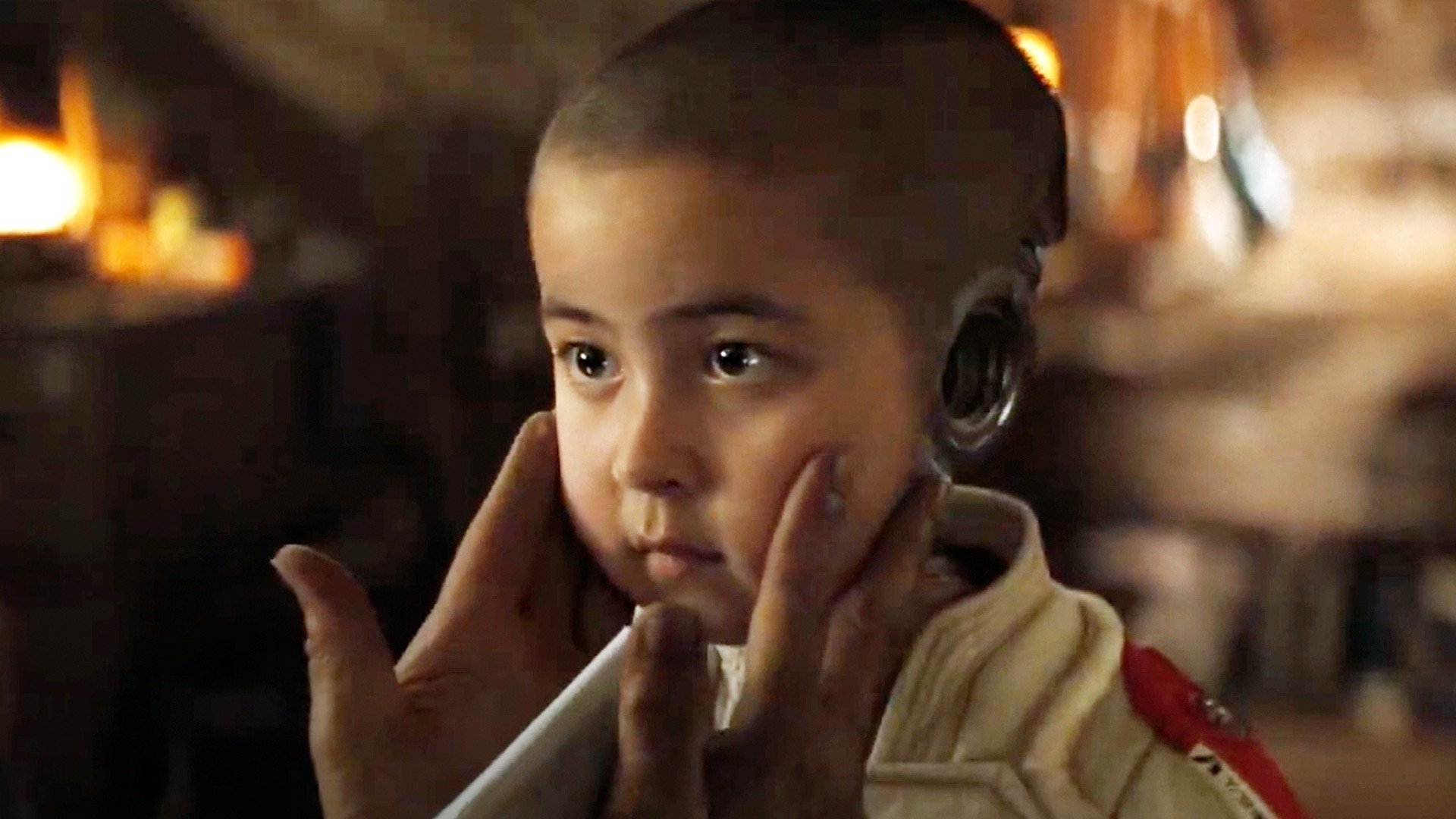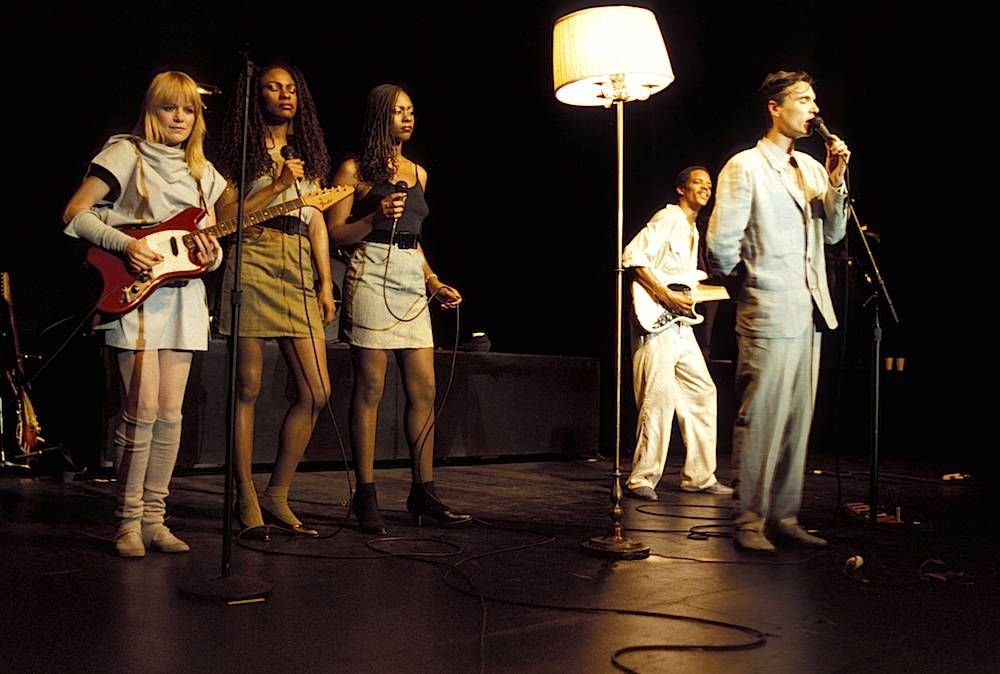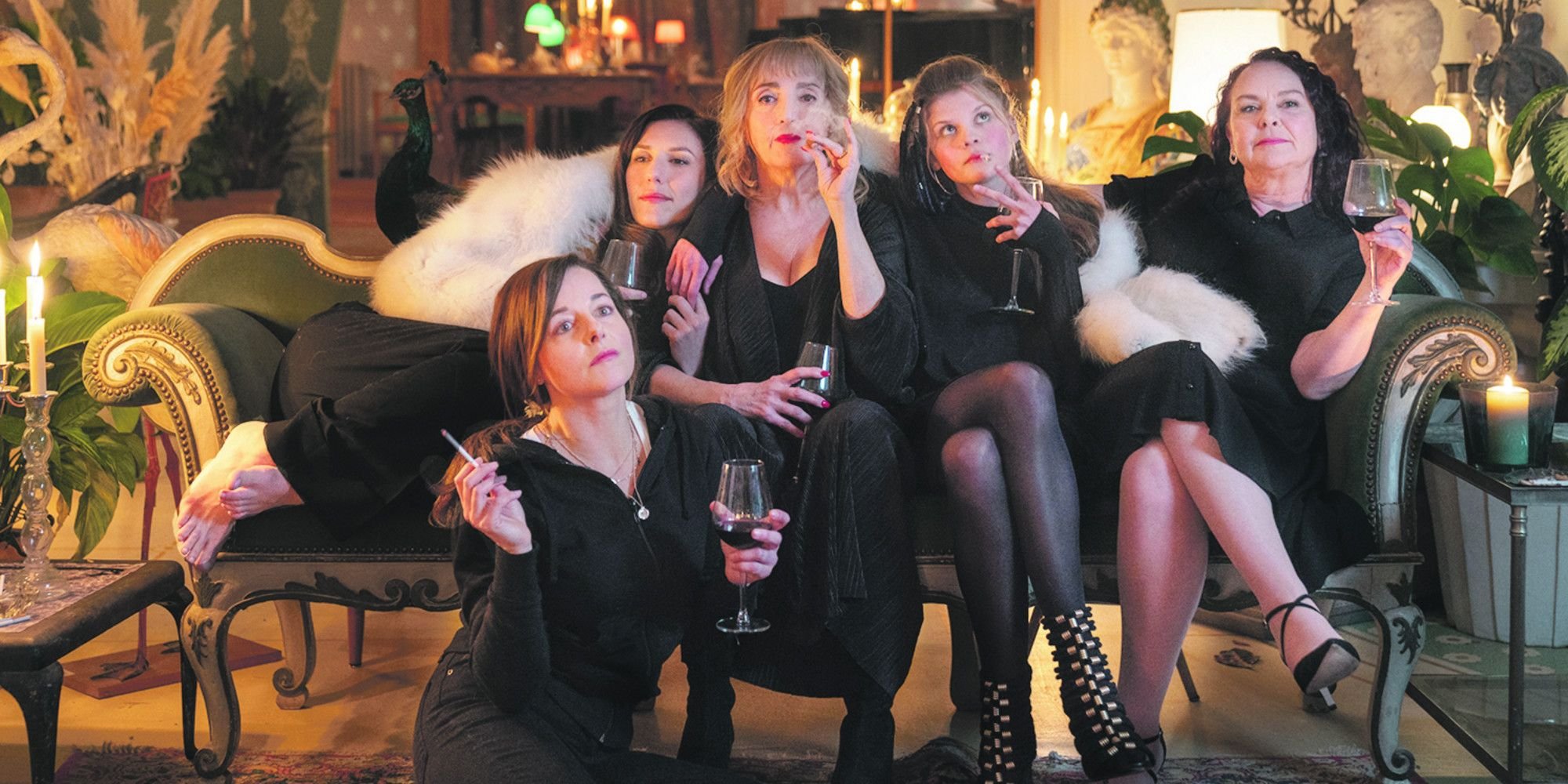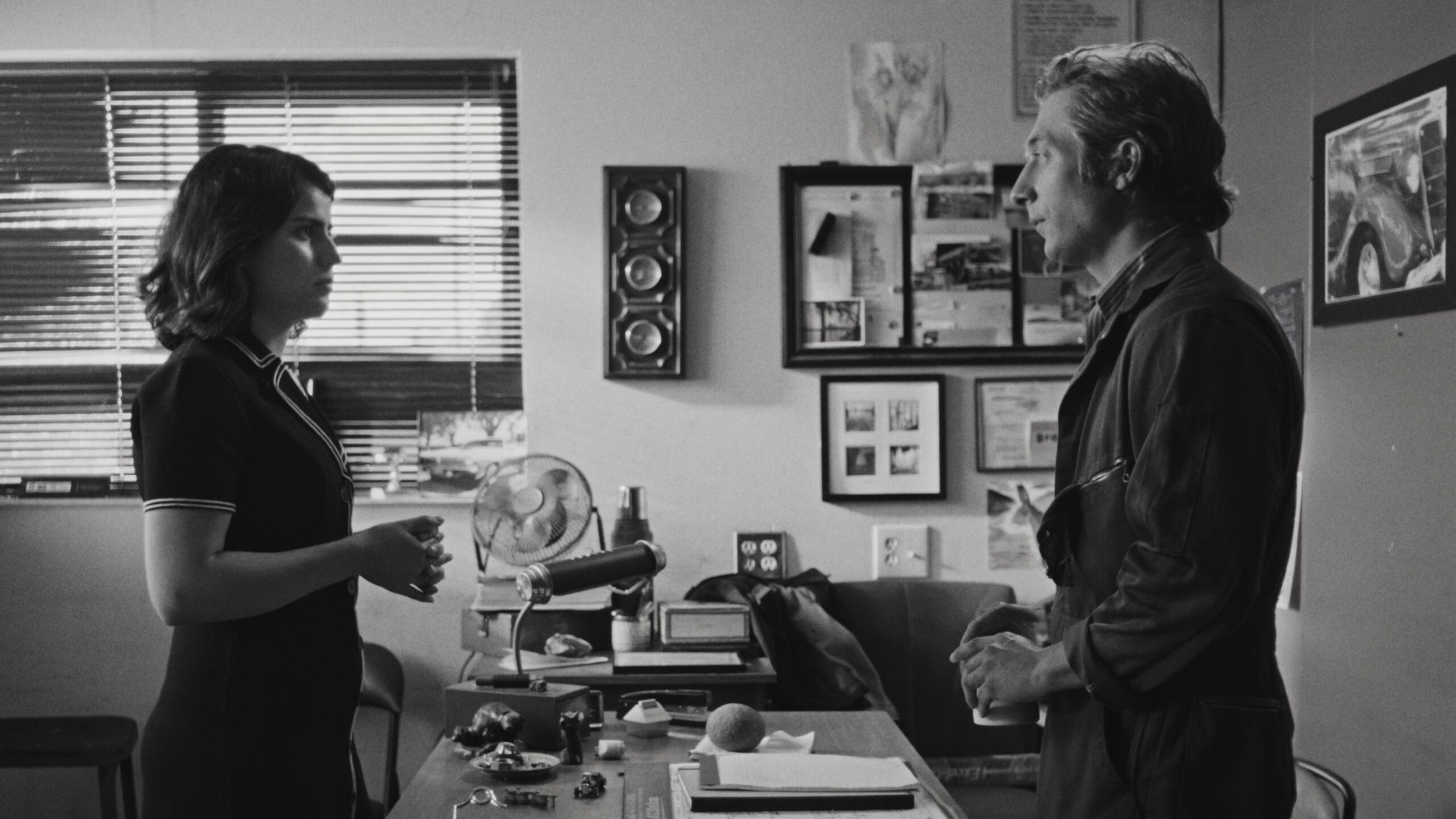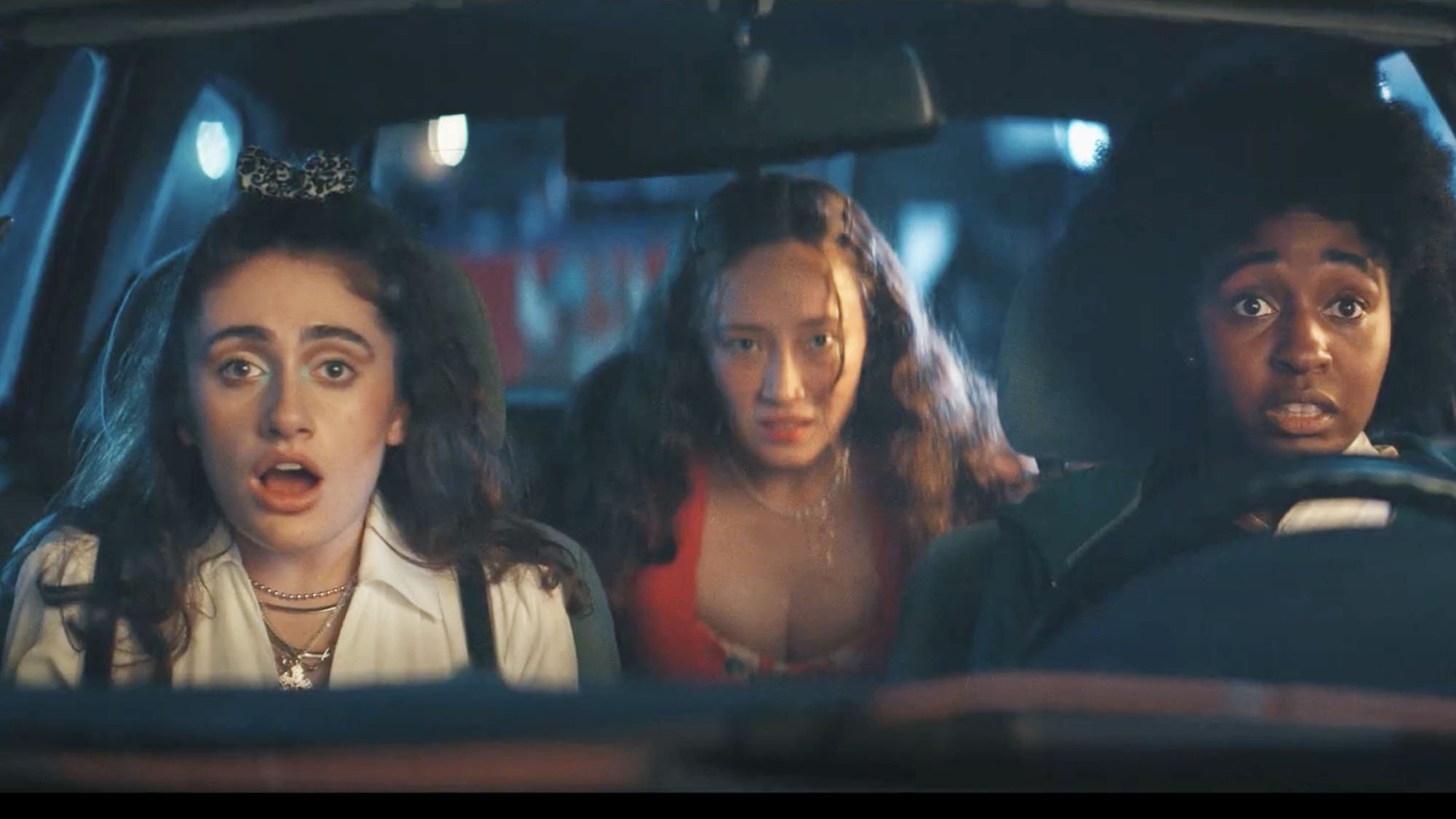THE ROYAL HOTEL
Directing: B
Acting: B+
Writing: B
Cinematography: B
Editing: B-
I can’t decide how I feel about The Royal Hotel. My initial reaction, particularly to the ending, was that the supposed payoff was unearned. The more I think about it, though, the more I think: but, was it?
There was a David Mamet stage play, and then a film, about thirty years ago called Oleanna. In the first half, we witness a series of conversations between an older, male professor and a younger woman student. In the second half, she accuses him of rape, and you are forced to re-evaluate everything you thought you saw in the first half. It was a very polarizing story, particularly down gender lines. I can still remember reading about the arguments it elicited among audience members. in Rogert Ebert’s 1994 film review.
That script was clearly designed to make audiences second-guess their own opinions, and to a degree, even their own eyes and ears. I’m not convinced that was the intention of director and co-writer Kitty Green with The Royal Hotel, and yet I find myself having that sort of response to it. I can imagine very different, and very gendered responses to it.
The trouble with me is, I exist somewhere in the middle. And when I start to go down the road of criticism in my mind, I start to wonder whether I am falling into the trap of victim blaming.
Kitty Green, who also happens to be Australian, has set this film in the Australian outback. Two young “work travel program” backpackers, both women, need to make some money quickly, so they take a gig bartending in a mining town many hours’ drive away from any city. When they arrive, there are two young women from the UK staying and working there, but they soon move on. The pub they work at has one other woman employee, an Aboriginal woman. The entire time we spend with these ladies, we see maybe two other women patrons of the bar. The point is, women here are vastly outnumbered by men.
And Green definitely traffics in nuance and subtlety. The men that Hanna (Julia Garner) and Liv (Jessica Henwick) contend with, mostly pub regulars, display a variety of demeanors. But, the more you think about it, the more you realize that they’re displaying varying degrees of toxic masculinity. So much of The Royal Hotel moves at a labored pace, with seemingly very little actually happening, it takes a while to register.
My own gender expression has no bearing on the fact that I cannot truly fathom what it’s like to exist in the world as a woman—whether it’s in the United States, or Canada (where these two characters are from), or Australia. Of course, the Outback is a reliable source for putting these sorts of cultural ideas into sharp relief. In any case, I could very well be off base when my initial reaction is to think that the way Hanna and Liv ultimately respond to these men is wildly disproportionate. The more I consider it, the more it occurs to me that there are plenty of women who suffer a sort of million tiny cuts, and these are a couple of characters who reach their breaking point.
They don’t reach it at the same time, mind you. Hanna is uncomfortable in this working-class, male-dominated environment from the first night. Liv spends a lot of time giving virtually all the men the benefit of the doubt, even a particular one who is clearly a creep. She’s convinced they all just have cultural differences.
A lot of The Royal Hotel is spent worrying about what harm might come to Hanna and Liv. Nothing as bad as feared ever really happens, and yet, it’s in this space of degrees where the real food for thought lies. There is a bit of violence that occurs in one instance, and again: it’s easy to imagine the interpretation of the degree to which it was an “accident” being split down gender lines. I think this is where Kitty Green knows exactly what she’s doing.
It’s whether it works, particularly as a movie, that I can’t quite decide. Also, no discussion about misogyny or toxic masculinity is complete without consideration of race, and that is every bit as much the case in Australia as any other bastion of colonialism around the world. An Aboriginal man appears in one scene, driving a delivery truck. The owner of the pub, Billy, still owes him three months back pay. Elements of racism, both with this character and with the woman who works the pub kitchen, are only hinted at. But, to a large degree, so is toxic masculinity.
Billy is played by Hugo Weaving, bearded and much aged since his heyday in the Matrix movies. I didn’t even recognize him. There are so many men with speaking parts in this film, I find myself wondering how much they truly understood the nuances of the script. The setting was very remote, and so was the set: filming occurred in the town of Yatina, South Australia, with a population of about thirty people. It’s roughly 150 miles north of Adelaide, where, presumably, a lot of the local actors were found. Billy is a drunk, and is predictably late paying Hanna and Liv, who over time are left to fend for themselves tending bar to rowdy locals.
I find myself struggling with this movie. I wanted more to happen in it, to justify the telling of the story. The plot pivots significantly at the end, in a way that may make some think of it as a “women’s revenge” movie. It’s not at all that simple. That’s an element in its favor, but, while I suspect I would gain greater insight with repeat viewing, I just didn’t find the overall story compelling enough to think that kind of investment would be worth it.
The Rorschach Hotel: you tell me what you see.
Overall: B



